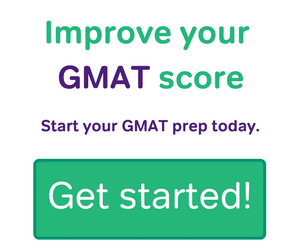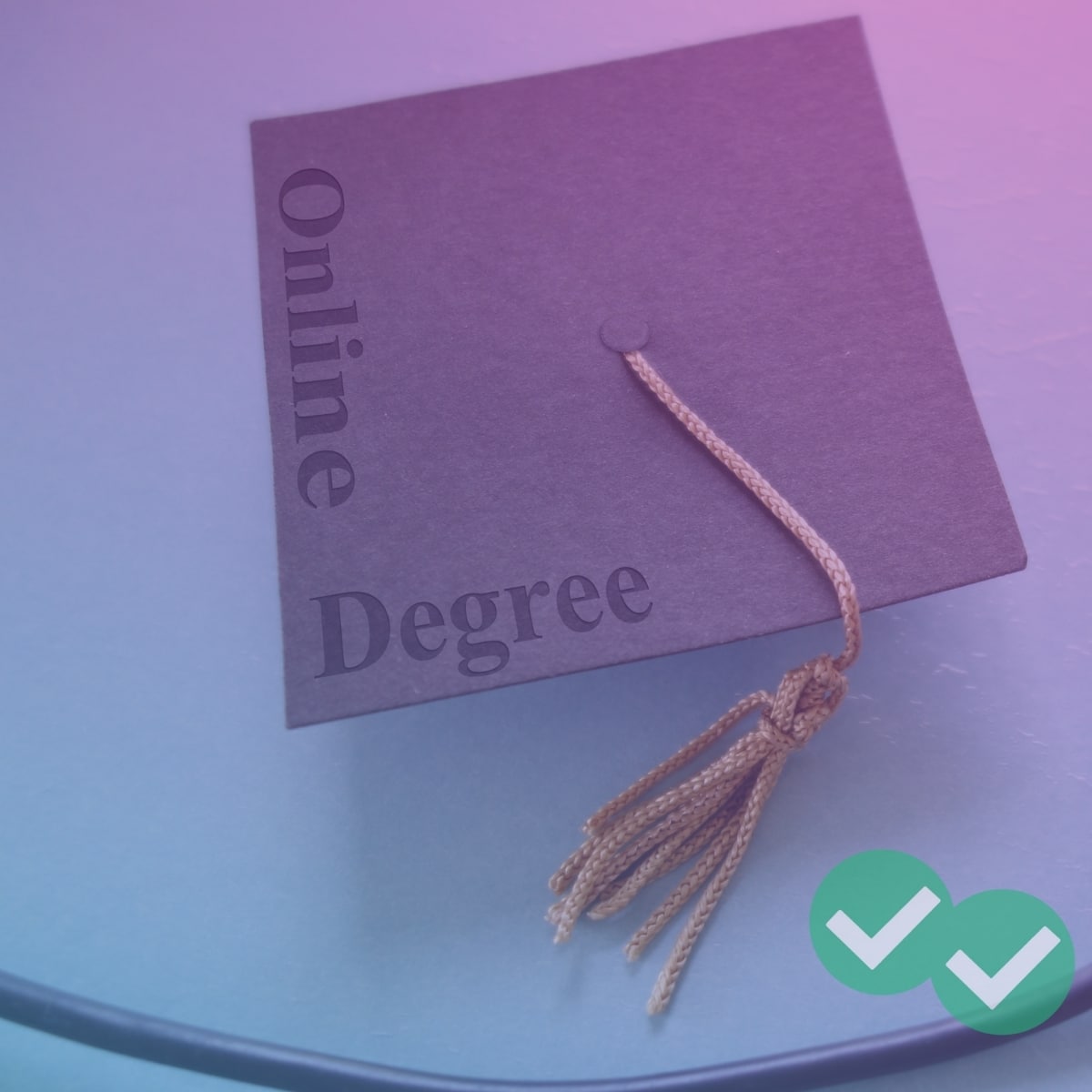Ah, North Carolina. Home of the Venus flytrap, and a surprisingly popular site for the filming of romance movies and teen dramas. Most importantly for prospective students, though, North Carolina has the Research Triangle: the Raleigh-Durham-Cary metro area that’s home to many world class university programs. These programs include– you guessed it– the Duke MBA. But is the Duke Fuqua MBA program right for you, or should you check out a guide to one of Magoosh’s other top MBA programs? Read on to find out!
Table of Contents
- GMAT Scores, GPA, and Acceptance Rate
- Duke Fuqua Application Process
- The Duke MBA Curriculum
- What Makes the Duke Fuqua MBA Unique?
- Employment Outcomes for Fuqua MBA Graduates
Duke Fuqua MBA Program: GMAT Scores, Acceptance Rate, and GPA
One of the best ways to feel out if you’ll fit in on Duke’s campus is the class profile: the typical academic, professional, and demographic background of students who’ve already been accepted. Does Duke University have a good MBA program for you? To answer this, Allison Jameson, assistant dean of admissions for the Duke Fuqua School of Business, sums up the top two qualities of Duke business school students: diversity and an open mind:
Fuqua attracts a tremendously diverse class of students who come from a myriad of different professional and personal backgrounds. Our students also go into a wide array of different industries and career paths after graduation…. Because our community is one that promotes innovation, and one in which we expect our students to provide ideas, challenges, and drive change, those who seek out those challenges and opportunities are those who do best at Fuqua.”
Still, it’s important to understand what Allison’s description of the Duke students’ different perspectives and sharp skills mean in terms of actual statistics. With that in mind, we’ll start with the class profile numbers that tell you whether or not you can get in to begin with: test scores, undergrad grade point average, and acceptance rate.
What is the average GMAT score for Duke MBA? Duke itself presents this data as a range rather than a precise average. You can see that range and many other important stats in the table below:
Fuqua MBA Class Profile Overview (Class of 2023)
| Class size | 447 |
| Acceptance rate | 24.9% |
| GMAT range (middle 80%) | 650-780 |
| Undergraduate GPA (middle 80%) | 3.1-3.9 |
| Average work experience | 5.9 years |
| Average age | 29 |
| Women | 48% |
| Married | 21% |
| International citizens | 47% |
| Minorities | 45% |
| Underrepresented minorities | 25% |
Fuqua MBA Demographics: A Closer Look
Now that I’ve put the academic stats in context with the overall demographics, let’s look even closer at those demographics. Specifically, let’s look at race and ethnicity. Duke MBA offers a lot of additional information on that aspect of their student body.
Before we look at the numbers, you should know that Duke allows its students to claim more than one racial identity on the race survey. So the numbers I’m about to show you will add up to more than 100%, but they also give a much more accurate view than a single-race survey would. In addition, Duke’s racial demographics are based only on their domestic students, not the international ones.
With that in mind, these are the racial identities of Duke MBA’s American students for the class of 2023:
- American Indian or Alaskan Native: 0%
- Asian: 23%
- Black or African American: 9%
- Hispanic: 14%
- Native Hawaiian or Other Pacific Islander: 2%
- White: 67%
- Chose not to indicate racial identity: 3%
The numbers above are just an overview though. For more details and explanation, see the official class profile page for the Duke Fuqua MBA program.
The Top Work Experience of Duke MBA Students
Remember when I referred you to the official Duke MBA class profile just a few moments ago? I’m going to sound like a broken record and send you back there. Why? Because that page’s “Recent Career Focus” section has one of the most ridiculously, wonderfully detailed reports on students’ professional background that I’ve ever seen on any MBA program’s website.
Still, I don’t think it’s just an eye for detail that’s at play here. It also really does look like Duke Fuqua MBA students come from an exceptionally diverse work background. So when you get some time, go to the above-linked profile page to peruse the Duke MBA class of 2023’s wealth of experience in all its glory. In the meantime, you can also see a quick summary of the most common types of work history in the table below. These five vocations represent over half of the current Duke Fuqua MBA cohort:
| Top 5 professions of Duke MBA students (class of 2023) | Percentage of cohort |
|---|---|
| Financial services | 14% |
| Consulting | 13% |
| Nonprofit, Education, and Government | 10% |
| Healthcare | 8% |
| Tech | 7% |
Remember, these are just the top career backgrounds. No matter who you are, at Duke, you’re likely to find others with a common career interest.
In light of all of the above, is Duke MBA hard to get into? Well, it’s certainly competitive. But if you bring your best materials and your A game to the Fuqua application process, you just might be a contender. Speaking of which….


How to Get Into Duke Fuqua MBA Program: Application Process
While the class profile info gives you a general idea of what it takes to get in, the most concrete instructions for getting in come from the Duke MBA application process. I’m about to walk you through a handy checklist of all the steps in your Fuqua MBA application. But first, let’s talk application deadlines.
Fuqua MBA Application Deadlines
Like many other MBA programs, the Fuqua MBA accepts applications in three main rounds. (You can see details on the three-round process in the “MBA Application Dates” section of our GMAT Test Dates post.) The Duke MBA Round 1 deadline is in October, while the deadlines for Round 2 and Round 3 are in January and March, respectively. Duke also has an early decision application deadline in September. International students are advised to either go for Early Decision or the first two rounds, so there will be enough time for visa processing.
To see more details on application timelines and to access the online application form, you can go to Duke’s “Admissions Facts + Dates” page.
Duke MBA Application Steps
So what are the steps and requirements as you navigate the applications process? Here are the things you need:
- A completed online application form
- Undergraduate transcripts (can be scanned initially, but print transcripts are required after admission)
- 1 short answer essay (maximum of 100 words), and two full-length essays (maximums of 750 and 500 words) (
- One-page resume
- 1 or 2 professional letters of recommendation (the second letter is optional)
- Valid GMAT, GRE, or Executive Assessment score (Does Fuqua require GMAT scores? Not exclusively!)
- For students for whom English is not their native language, a valid TOEFL, PTE or IELTS score (details on their International Students page)
- An application fee of $225. (Although Duke offers a number of ways to get that fee waived.)
- An interview – interviews are open to all applicants, regardless of round applying, in the Open Interview period (open approximately mid-September through mid-October), and after that interviews are by invitation. Due to Covid-19, all interviews are done remotely.
Still have questions about the requirements above? No problem! Visit Duke Fuqua’s official Application Instructions page for answers.

Duke MBA Curriculum
The curriculum for the Fuqua MBA unfolds in two different one-year phases: core curriculum (first year) and electives (second year). If you’re having trouble picturing exactly how that looks, Duke has you covered! Check out their detailed description of first year and second year MBA coursework. Students who can demonstrate equivalent experience to a core course can opt out of that course and instead take a different elective. All the classes are grouped into eleven categories. To see the categories and read descriptions of the core courses and the electives, go to the main Curriculum page for the Fuqua MBA program.
In addition to the eleven course categories, Duke offers 13 concentrations. Choosing a concentration is optional; if you attend the Duke MBA, you can also simply choose a generalized study path. But if you have preferences on what to study, there are a wide range of options, from traditional emphases such as management or financial services to emerging emphases such as social entrepreneurship and financial tech. All concentrations are listed and described at Daytime MBA Concentrations. And to answer a frequently asked question– is Duke Fuqua an MBA STEM? For those who want to pursue management science interests, it can be, with the MSTEM emphasis.
Another key feature of the Fuqua MBA curriculum is experiential learning— learning that is done on the job, in work and entrepreneurial experiences that Duke Fuqua sets up for its students. To look up all the details, check out Duke’s Experiential Learning page. These learning opportunities can include travel to other countries, and you can expand on those international experiences with Duke Fuqua’s Study Abroad program.

What Makes Duke Fuqua Unique?
So what is Duke MBA known for, truly? What will make your MBA experience there unique?
What makes Duke most unique is its diversity. Don’t get me wrong– no MBA program (or academic program of any sort) can be perfectly diverse and inclusive. But the Duke MBA program tries hard, and succeeds on many fronts. If you attend Duke, you’ll find yourself in a program where nearly half of the student body coming from other countries. Not only that, but the representation of underrepresented minorities– and minorities in general– is better at Duke than it is at many other comparably elite MBA programs. Check out the video below to learn more!
And of course, there’s also diversity of experience. As I discussed earlier, students come from a very wide variety of professions. The locations students come from are richly varied as well; Duke MBA scholars come to North Carolina from 54 countries and 33 states.

Duke Fuqua Employment Outcomes
All the info I’ve given you above leads to one burning question: does Duke’s wealth of educational opportunities and diversity lead to actual wealth for its graduates? To find that out, let’s explore the Duke Fuqua MBA program’s employment outcomes!
Duke Fuqua’s 2020 employment outcomes report bears good news: at graduation time and at three months after graduation, 90% or more of the graduates received job offers. Looking more closely at those numbers, 90% of all students were offered a job by the time they graduated, with 84* accepting. Then, by three months after the class of 2020 graduated, 93% of graduates had received a job offer, with 91% accepting.
So job placement numbers are impressive, even for a high-ranked MBA program. But we live in a cash world! What are these graduates actually getting paid? Fuqua MBA class of 2020 graduates made an average first year salary of $136,000 per year, with average sign-on bonuses of $35k. That said, salary and sign on bonuses vary a bit depending on the industry students were hired into, and the region where they worked. For details on that, see pages 18 and 19 of the 2020 Duke Fuqua MBA employment outcomes report.
In fact, I would recommend reading the employment report in full as you make your final decision about applying to and possibly attending Duke Fuqua for your MBA. And as you consider the ultimate reward– your long-term career prospects– also be sure to peruse Duke’s Career Development page. That page lists the varied support you get in cultivating and launching your post-MBA career.
A Final Word
Finally, consider the support from your peers that you’ll get at Duke Fuqua, not just as a working graduate, but as a student and even as a prospective student. I’ll leave you with one more quote from Duke Fuqua recruiting director Allison Jamison, this time about Duke’s collaborative environment:
“If you ever read anything about Fuqua or talked to any of our students or alumni, you have heard the term “Team Fuqua.” Team Fuqua is a real thing – it’s tangible on campus and it affects your entire Fuqua experience, from application to student life to alumni involvement.
This means that if you come to campus as a visitor, our students will come up to you and offer to show you around or answer your questions. They may invite you to lunch or even, if the time is right, to come with them to a Duke basketball game. It means that as a student, you will prep together with your classmates for an important job interview, even if you are all interviewing for the same position. Our students genuinely want success not only for themselves but for their teammates.
And as an alum, that legacy and support continues. If you ever need to consult an old professor on a project, or reach out to a fellow alum you’ve never met at a company you want to work for, you will find a welcoming supporter. Team Fuqua is really what defines us and makes this experience truly transformational.”






Leave a Reply